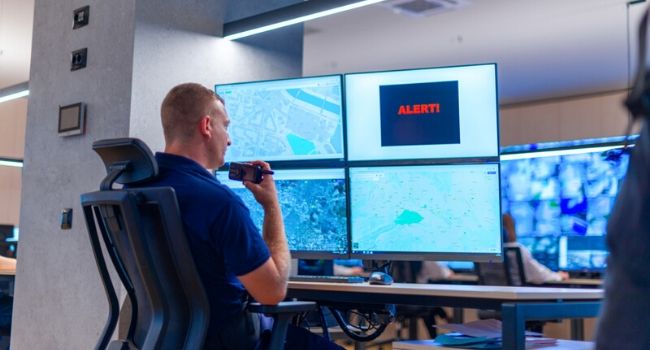
Security Industry Groups Call For Alarm Response, Security Services to Be Classified as “Essential” During Coronavirus Pandemic
SIA, ESA and TMA have penned a letter to public safety officials calling for governments to exempt alarm response centers and companies that serve them from shelter-in-place orders.
- By Haley Samsel
- Mar 25, 2020
Three organizations representing the security and life safety industries are circulating a letter to state public safety officials that calls on governments to classify electronic monitoring and other safety services as “essential” during the COVID-19 pandemic.
The Security Industry Association (SIA), the Electronic Security Association (ESA) and The Monitoring Association (TMA) penned the form letter, which has gained more than 450 signatures from security company leaders.
The letter, released Tuesday, asks state governments to explicitly exempt businesses offering electronic security, fire, monitoring and life safety services from shelter-in-place or quarantine orders by classifying them as “essential services.” Policies should ensure that alarm response centers, and the companies that provide repair and installation of the security technology, remain operational, the three organizations argue.
Manufacturing of such security products should also be considered essential under any shelter-in-place or quarantine orders, according to SIA, ESA and TMA. Alarm response services act as “vital communication filters and links to first responders and emergency dispatches around the country,” the letter reads.
“In times like these, the efficient deployment of emergency services is of critical importance for keeping people safe and instilling a sense of calm in the general population,” the organizations wrote, adding: “We are writing to ensure that the individuals, hospitals and businesses that depend on these services and security products for their health, safety and welfare are not adversely impacted by any governmental shelter-in-place, quarantine or similar orders.”
A directive signed by Christopher C. Krebs, the director of the Cybersecurity and Infrastructure Security Agency (CISA), classified information technology systems workers, law enforcement officers and call center employees as essential. But Krebs did not specifically touch on alarm response centers or the security companies that support them, noting that state and local officials can make the choice to classify more workers as essential or not.
"These identified sectors and workers are not intended to be the authoritative or exhaustive list of critical infrastructure sectors and functions that should continue during the COVID-19 response," Krebs wrote in his directive. "Instead, State and local officials should use their own judgment in using their authorities and issuing implementation directives and guidance."
SIA continues to collect signatures from security leaders for the letter as part of its advocacy efforts. Interested security workers can contact SIA CEO Dan Erickson to affirm their consent to sign.
About the Author
Haley Samsel is an Associate Content Editor for the Infrastructure Solutions Group at 1105 Media.